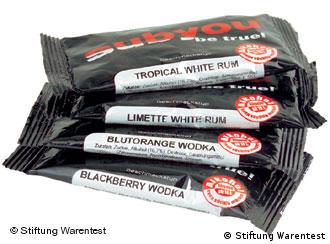Overall, this debate on drug classification, following up on the Science and Technology Select Committee's 2006 highly critical report on the subject, was rather disappointing. Stretching out over more than three hours, with three 15 minute breaks for division-bell votes in the Commons, this was less of a debate than a restatement of existing positions. Some of it was very interesting but there was little added to previous written reports and committee sessions. For a far more incisive and informative debate I highly recommend reading the transcript of the committees follow up session last November in which they re-interrogated the Minister, the Chair of the ACMD and the Chair of the ACMD technical committee following the written responses to the committee's 'Making a hash of it' report .
see here for more details on the debate and background info
Unlike the cut and thrust of committee interrogations and cross examinations, which are far more feisty and unpredictable, this was in the classic parliamentary debate format with speeches from interested parties, followed by a response by the Minister Vernon Coaker, representing the Government. Whilst people were free to make interventions they generally didn't, and I personally found it all a bit flat and unrewarding. It will all be online on Hansard in a couple of days so you can make your own minds up then. In the mean time.....
Phil Willis, chair of the committee, gave an excellent introductory speech essentially summarising the committees findings and then critiquing the rather hopeless response from the Government.
Brian Iddon then gave a similar speech picking up on a few of the details of the report, using the risible lack of science or scrutiny behind the decision to classify magic mushrooms as a class A drug in 2005 as his central example.
Paul Flynn, not a member of the committee, then took the floor to lambast the failure of the Government's drug policy in the strongest of terms, reminding the Minister that he had sat through 20 years of empty promises from tough talking ministers hell-bent on an enforcement led drug policy despite the disastrous consequences for all to see. He referred to the Government's response to the inquiry as a disgrace and highlighted the harm, including drug deaths in his constituency that were the direct result of prohibition. (He also name-checked Transform - which was good to hear).
Dr Evan Harris then took the floor, focusing on the response to the committee's report from the ACMD itself, which he rightly noted to have been defensive to the point of rudeness. The reports author, ACMD chair Sir Micheal Rawlins, had clearly taken exception to the committee's criticisms (which were arguably over-personalised), and had penned a terse and stroppy response that Dr Harris then critiqued (Rawlins, it should be acknowledged had made amends for this at the November follow up session). Harris also restated the Lib Dems progressive policy and tried rather lamely to claim they were fully behind it (actually it has hardly ever been mentioned and disappeared from their website during the general election. hmmm).
Finally there was a rather dull exposition from Vernon Coaker's Shadow, Edward Garnier, speaking for the Tories, who had a few vaguely interesting things to say about his experience as a judge, along with the new Tory policy (basically: send addicts to rehab not prison), but nothing useful to contribute to the debate about classification. This was presumably because the Tories daren't touch drug law reform whilst they still think there's tabloid capital to be made by hyping the 'skunk' panic and then making the Government look bad by endlessly twittering on about cannabis re-classification, or re-re-classification, to try and make the Government look bad. He was interrupted twice by the division bell and had to forfeit a couple of pages of speech, which, to be honest, was a relief.
After all that, and with only about 15 minutes of the 3 hour session remaining the Minister finally took the floor to respond. This he did predictably enough beginning with lots of platitudes about how wonderful the report, the committee and the debate were, and how there were passionate views on all sides and he respected etc. etc. This was then followed with a list of all the changes that had been made in response to the committee. These included:
on increasing transparency:
- that ACMD minutes would henceforth be available online (on the Home Office website at some unspecified point in the future)
- that ACMD meetings would, with a few exceptions, be open to the public, who would also be able to ask questions (times and dates will be on the Transform website when we learn them)
on reviewing classification:
- The ACMD would be doing a systematic review of all drug classifications, including ecstasy and magic mushrooms (although no time scale was given on this, and to be honest that is their job anyway so its hardly a massive concession).
- Coaker renewed his assertion that the Government had no intention of reclassifying ecstasy, but said, in a micro-concession perhaps, that they would 'wait and see' what the ACMD had to say, and also that the Government had never rejected a recommendation made by the committee ( perhaps overlooking the ACMD call to reclassify cannabis which they had been recommending since the seventies?)
And that was that. On all the substantive critique about the and lack of science and evidence base underpinning the system more generally he said nothing useful
at all, except to repeat the line from the Government's written report that he believed the classification system was great and doing its job brilliantly, almost as if saying it enough times might somehow make it true. Evidence for this success was a list of cherry picked statistics, (some of which have been deconstructed
here ) and meaningless process indicators (basically a re-run of
this article).
The issue of a consultation/review of the classification was briefly addressed towards the end, having cropped up repeatedly in the speeches. Specifically why the Government had cancelled its plans (announced by the previous Home Secretary to the House of Commons last January) to have such a review despite calls from the
ACMD itself, the Science and technology Select committee, The
RSA, and many others, and despite the fact that the consultation document had been drafted and was days away from publication. We were given the preposterous fob off of answer that :
' there is no optimum system obviously better than what we have today'. This runs contrary to the conclusions of the Committee,
the Lancet paper published by the head of the
ACMD's own technical committee and the head of the Medical Research Council, not to mention our old friends logic and reason.
The minister was similarly dismissive on the issue of the
lack of evidence base for classification as a deterrent to use or dealing. In a classic ministerial
'we'll get back to you on that' non-answer
Coaker said that the Home Office was doing some
'scoping' work on deterrence and '
we are looking to how to take that forward'. Translation: we know there's no evidence so we are going to stall on this one until it hopefully goes away.
Coaker is a great politician and a likable chap, he does sincerity very well. But even if he buys into some of the Government's position on drugs (regards harm reduction and treatment perhaps where arguably progress has been made) it must be quite distressing to have to come before a Select Committee of scientists, who clearly know more about the issue than he does, and who have systematically and rather brilliantly critiqued one key aspect of drug policy which is transparently unscientific, and demonstrably a total failure - and then have to passionately defend it. The only option available (obviously excluding
conceding the mistake and improving policy accordingly) is to spin the few crumbs of success where you can find them and then avoid all the substantive issues using the familiar ministerial armoury of rhetorical
tricksyness.
This particular junior ministerial position appears more and more like a rite of passage for future cabinet ministers. It reminds me of a frat-house hazing ritual - survive it and you become one of the gang (
Blears, Flint), mess it up and you're relegated (
Howath,
Ainsworth). If you can carry the poisoned chalice of drug prohibition, defend the indefensible, spin catastrophic failure as success, and keep your chin up and your smile in place whilst running the gauntlet of truth-seeking scientists and free-thinking backbenchers and
NGO's, then maybe sonny-
jim, there's a place at the big table for you.






















